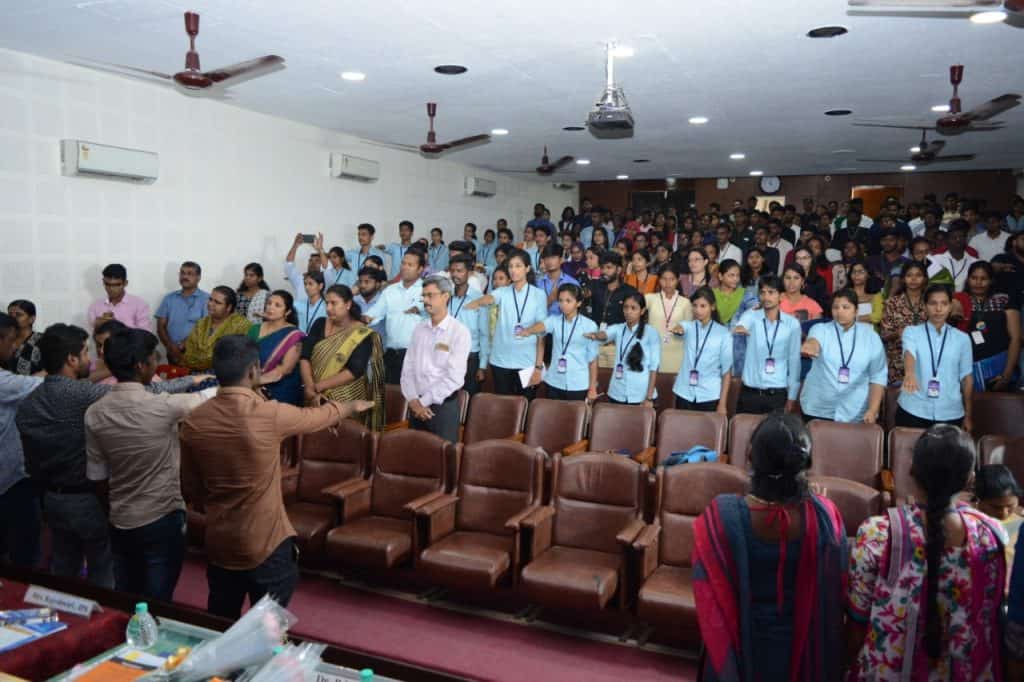Just like sports clubs and art clubs, several Chennai colleges will soon have Anti-Human Trafficking (AHT) clubs to sensitise and train youngsters to prevent and act against human slavery. Twelve colleges in Chennai have expressed intention to launch AHT clubs in their institutions to elevate human trafficking issues to public discourse and combat the rampant human rights violation.
The launch of the programme, to commemorate the 70th International Human Rights Day on December 10th, took place at the Madras School of Social Work (MSSW). The State Human Rights Commission (SHRC) spearheaded the initiative, in collaboration with the International Justice Mission (IJM) and Madras School of Social Work.
A pervasive evil
Human trafficking is a serious problem across the nation, often tied with many illicit crimes such as organ trade, child pornography, prostitution and bonded labour. However, the common man is often unaware of the serious dimensions of human trafficking in the country.
Statistics prove that instances of human trafficking cut across castes, religions and caste. According to Childline Foundation, 1691 children were rescued from Chennai Central and Egmore railway stations between Jan 2017 and May 2018. “Human traffickers make no discrimination. One need not be from a lower socio-economic class to be trafficked. Men and boys are trafficked too,” said P M Nair.
Given the reality, AHT clubs are particularly important in an urban setting, where citizens are often too busy with their own lives to be acquainted with the problems in the neighbourhood. “In a rural scenario, people are the social capital; they are the resources to combat problems such as trafficking. A scream or a knock on the door is enough in times of danger. That is a big miss in cities, and thus we need AHT clubs,” said Dr A Enoch, Assistant Professor, MSSW.

Student representatives from 12 colleges took an oath against human trafficking during the launch of Anti-Human Trafficking clubs. Credits: IJM
Clubs in action
AHT clubs will channel the passion of students towards social responsibility and human rights issues. Retired IPS officer, Dr P M Nair, who conceived the idea, said that the goal of the club is to ensure that no person – man, woman or child, be sold, purchased, violated or be subject to any form of exploitation. “Trafficking is prohibited under Article 23, Constitution of India. It is the Constitutional right of every person to not be trafficked and our constitutional duty to ensure that no person is trafficked,” stated Dr Nair.
Since awareness is the first step towards change, the clubs will focus on educating youngsters. “AHT clubs in colleges will also have a police personnel from the local anti-human trafficking unit, to mentor the children about trends in trafficking. A professor from the same college will be in-charge of planning out activities and a Non Governmental Organisation (NGO) will guide the students,” said Solomon, a social worker from the International Justice Mission (IJM).
Students from the club would be taught about four important parameters: Recognise, Report, Rescue and Campaign. “Once students are taught about trafficking, they will be able to identify real and potential cases in their neighbourhoods. They could be of support to the law enforcement agencies and act as whistle blowers against exploitation. The ultimate goal is to make students campaigners against human trafficking,” said P M Nair.
How can you help?
AHT clubs need not have to be only for the student community. Any socially conscious person can get involved in similar activities.
- You can start by keeping an eye on child labourers and reporting to law enforcement agencies.
- Visit shelter homes run by either the Government or NGOs under popular schemes like Swadhar, Ujjawala etc and assist them in carrying out their work; give constructive feedback and support them to improve their functioning.
- Enroll yourself in ‘Certificate in Anti-Human Trafficking‘ (CAHT), a distance learning course offered by the Indira Gandhi National Open University (IGNOU) that can be completed in 6 months at the least and a maximum of 2 years.